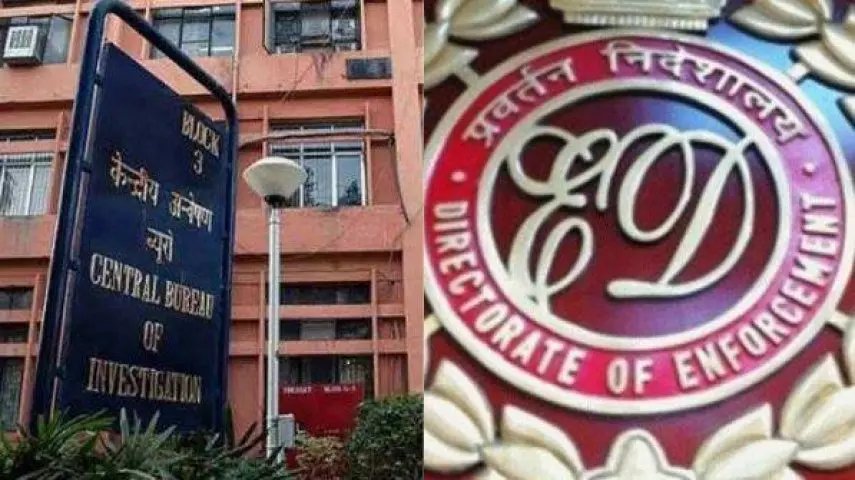
On Nehru's birthday, a tale of two ordinances
text_fieldsJawaharlal Nehru was one of the architects of modern India and its first Prime Minister. That the same Jawaharlal Nehru, who gifted us with an exemplary democratic system of government, is constantly ignored and insulted by the Sangh Parivar and its Government should come of no real surprise to anyone. Ultimately, those who dream of a fascist regime based on Hindutva can only look at Nehru's secular-democratic ideas and expressions with fear. It was that fear that prompted them to stay away from even his birth anniversary celebration at the Parliament yesterday. Lok Sabha Speaker Om Birla, Rajya Sabha Chairman Venkaiah Naidu and almost all BJP Union ministers boycotted the function at the Central Hall on Sunday. While that ceremony was on, President Ramnath Kovind was signing two important ordinances at the nearby Rashtrapati Bhavan - two documents extending the term of office of the directors of the Central Bureau of Investigation (CBI) and Enforcement Directorate (ED) from two to five years. It is true that there is no direct connection between the ordinances passed and the Nehru remembrance ceremony at Central Hall. The ruling party bringing in the ordinances, has to be seen as a move to overthrow federalism, which can be described as the cornerstone of the Nehru-envisioned democracy, which will in turn, pave the way for the dictatorship of the Central government. It is the recognition of just how dangerous this move is that has prompted the Opposition to come out as one against it.
Technically there are no particular dangers in ordinances; these are just an amendment to two laws that seem straightforward. The term allotted to directors of both institutions is currently two years. The gist of the ordinance is that upon completion of two years, the term may be extended to three times a year, subject to the approval of the Selection Committee. The Law Ministry sent the ordinance to the President after amending the Delhi Special Police Establishment Act, 1946 and the Central Vigilance Commission Act, 2003. Even a primary assessment will show that the Centre's action is a cover-up of major complications beyond the technicalities. That is what the Opposition has pointed out. Almost all the opposition parties have pointed out the suspiciously hasty circumstances surrounding the two ordinances. Generally, such ordinances are issued for urgent purposes when the Parliament is not in session. When the ordinances are issued close to the start of parliament's scheduled session, this move can be seen as a ploy to keep the issue out of Parliament. With the solid majority of the ruling party in Parliament, it should have been easy to get them passed. With the majority of the ruling party in Parliament, it should have been easy to get them passed. Yet, if it was denied entry into the sanctum sanctorum of democracy, that has to be viewed with suspicion.
The Opposition's allegation that the amendment is undermining the autonomy and independence of the Central investigation agencies should also be taken at face value. Such investigative agencies are envisioned as a completely independent mechanism that operates at a precise distance from the state. However, experience shows that such agencies often act as the pawns of the governments of the day. We also have ample evidence that the Modi-led NDA government at the Centre has seriously misused this facility. The Sangh Parivar government has used the ED and the CBI to suppress political enemies and to reinforce its rule in various states. The ordinances in question are a move to retain the heads of the agencies that made 'invaluable' contributions to the party during such times. Take the case of current ED chief Sanjay Mishra. One who has taken a suspiciously soft stand in cases including that of Nirav Modi, he was instrumental in the crackdown on the Opposition at the behest of the government. His term expired in 2020 and was extended for another year; the extended period ends tomorrow. And the Supreme Court had ordered him not to remain in office after that. The Centre has now issued a new ordinance in defiance of the Supreme Court order. It is the essence of democracy that collapses when central agencies become political implements; that is what fascism wants. These ordinances are the way to fascism. Therefore, democrats have a great responsibility to be in solidarity with the voice of the opposition against the Centre's actions.






















